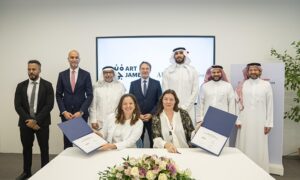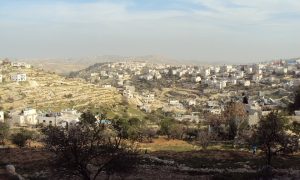Awards for public health in the Seventy-sixth World Health Assembly
During a moving ceremony at the Seventy-sixth World Health Assembly in Geneva, awards were presented to persons and institutions from around the world for their outstanding contributions to public health.
“The 2023 public health prizes and awards celebrate people who have made a significant contribution to global health, and whose work has extended far beyond the call of normal duty,” said Dr Tedros Adhanom Ghebreyesus, WHO Director-General. “At a time when the world faces many challenges, each is an inspiration and a reminder of the progress that can be made to improve health and wellbeing for all.”
The call for nominations of candidates for each prize is sent out each year after closure of the World Health Assembly. Nominations can be made by national health administrations of a WHO Member State and by any former recipient of the prizes. At its 152nd session in January 2023, the Executive Board designated the 2023 winners of the prizes, on the basis of proposals made by the dedicated selection panels for each prize.
The seven laureates have been selected to celebrate their unique role and contribution for public health in their countries and globally. They come from four WHO Regions – for the Americas, the Eastern-Mediterranean, South-East Asia and the Western Pacific. Five winners are individuals, and three among them are women. In addition, the two institutions that have received a 2023 award are led by women.
Winners of the 2023 prizes
Sasakawa Health Prize
The 2023 laureates are the Nick Simons Institute from Nepal, and Professor Vichai Tienthavorn from Thailand
The Nick Simons Institute is a nongovernmental organization aiming to improve health care in the rural areas of Nepal. Working closely with the Ministry of Health and Population of Nepal, the Institute has trained 7000 medical professionals (such as midwives and anaesthetic assistants) in rural areas, who now provide most-needed services to local communities in the absence of a sufficient pool of general practitioners and specialists. The Institute has supplied essential equipment and provided additional health personnel to alleviate the lack of medical professionals in 44 hospitals, and supported the design of an action plan for better quality services in more than 100 rural hospitals. The Institute also conducts research and advocacy activities to shape perceptions and influence policies that affect rural health workers in Nepal.
Professor Vichai Tienthavorn is President of the Praboromarajchanok Institute at the Ministry of Public Health of Thailand. One of the nation-wide initiatives he has led is an innovative health promotion policy to help address thalassemia, with his work resulting in the adoption of an effective national policy for thalassemia prevention and control. He also designed an effective communications tool and screening method to help citizens to adapt their behaviours in order to prevent and control diabetes and hypertension. As a result of this work, a national policy was adopted with significant positive impact on the country’s disease burden. Professor Tienthavorn also played an essential role in addressing the challenge of uneven distribution of the health workforce, especially in border and rural areas of Thailand. He led the establishment of partnerships with village schools to recruit high-school students, train them and help them settle back locally after having accomplished an accelerated medical curriculum.
United Arab Emirates Health Foundation Prize
2023 award laureate: Dr Maria Asuncion Silvestre from the Philippines
His Highness Sheikh Sabah Al-Ahmad Al-Jaber Al-Sabah Prize for Research in Health Care for the Elderly and in Health Promotion
2023 award laureates: The National Center for Chronic and Noncommunicable Disease Control and Prevention from China; and Dr Abla Mehio Sibai from Lebanon
The National Center for Chronic and Noncommunicable Disease Control and Prevention, part of the Chinese Center for Disease Control and Prevention (China CDC), has hosted a department focusing on the health of older people since 2013. It delivers a broad range of programmes and activities that advance health promotion for older people, ranging from better understanding the causes of morbidity and mortality through national surveillance for noncommunicable diseases, surveys, death registries and research, to tailored programmes to promote health literacy and evidence-based policies. Initiatives include a dedicated toolkit for older people, capacity‑building of 2000 primary care staff, a health advocacy week dedicated to older people, and an innovative project to improve the mental and cognitive health of more than half a million older persons in both urban and rural areas.
Dr Abla Mehio Sibai is Professor of Epidemiology and Dean of the Faculty of Health Sciences at the American University of Beirut in Lebanon. She has made an outstanding contribution to older people’s health in Lebanon and the region, developing a holistic approach to the promotion of healthy ageing. She led the innovative initiative of enrolling close to 600 older people every year at the University for Seniors at the American University of Beirut, in addition to training public health professionals. She co-led the landmark WHO Global Burden of Disease Study in Lebanon (2000) and conducted the first national survey on noncommunicable diseases and risk factors, informing advocacy, policy-making and programme planning for health promotion. Building on her numerous achievements, Dr Sibai has developed the “National Strategy for Older Persons” in Lebanon (2020–2030). Dr Sibai also created the Arab Ageing Network and the Centre for Studies on Ageing to create links between research and policy at the national, regional and international levels.
Dr LEE Jong-wook Memorial Prize for Public Health
2023 award laureate: Dr Jorge Francisco Meneses from Guatemala
Having promoted community participation in hospital care for over 20 years, Dr Jorge Francisco Meneses set up community-based committees focusing on the safety and satisfaction of patients, their families and the community. Given the positive impact of his work in improving the quality of patient care, the model of ethical and patient-centred care that he designed was scaled up at the national level. Nowadays, as the national supervisor for hospitals of Guatemala, he has designed a programme to improve the quality of services for hospital patients and their families. Dr Meneses has recently coordinated an innovative pilot project in the Guatemala South Health Area to build the first national integrated network of health services, with a priority focus on underserved communities. His work led to the adoption of a national strategy of integrated health services networks, the first in Central America.
Nelson Mandela Award for Health Promotion
2023 award laureate: Dr Mariam Athbi Al Jalahma from Bahrain
In addition to being the Chief Executive Officer of the National Health Regulatory Authority of Bahrain, Dr Mariam Athbi Al Jalahma has held various leadership positions in government and academic institutions in her country. Dr Al Jalahma has played a major role in the development of numerous national and region-wide strategies and plans in the field of primary healthcare, child and adolescent health, chronic diseases and antismoking. In her current role, Dr Al Jalahma has led major successful initiatives, such as the national accreditation system for health institutions, the digital transformation of the National Health Regulatory Authority, and several initiatives leading to increased efficiency and excellence in the health sector. She is also a prominent voice for health promotion across various channels throughout all countries of the Gulf Cooperation Council.



























